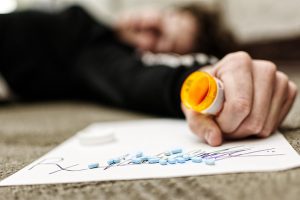Many of us have friends or family members that have suffered from substance abuse disorder and struggled to overcome their addiction and completely recover. It’s not uncommon for recovering addicts to relapse at some point, especially if they are still visiting areas where they were using, or still surrounded by the same negative influences. Understanding what addiction is, and why it’s so easy to relapse, will help family members figure out healthy ways to cope and support their loved one during difficult times.
What is the Meaning of Addiction?
Addiction is a brain disease that results from constant substance use despite hazardous consequences. People suffering from addiction are intentionally focused on using drugs or drinking alcohol, and eventually, it takes over their lives. Even though they understand that abusing drugs or drinking alcohol causes problems in their lives, they still partake in the behavior because they believe they can’t function without doing so.
After abusing drugs and alcohol on a consistent basis, people eventually develop distorted thinking and behavior. Even the body becomes distorted and starts functioning differently. Drugs eventually alter the brain’s wiring, which causes people to have intense cravings that make it difficult for them to stop using. Even after going through a treatment program, the brain doesn’t automatically rewire itself to the way it was before the drug abuse, which is one of the reasons why staying sober can be difficult.
Understanding Relapse Triggers
There are several contributing factors that play a role in why recovering addicts relapse. Some factors include how long they were abusing drugs, how long they spent in a treatment facility, if they’re constantly surrounded by supportive people, and whether they live in an environment that’s conducive to their sobriety.
Another contributing factor to relapsing is intense subconscious yearnings. Dealing with the mind during recovery can be a challenge because the addiction will manifest into thoughts that are not the person’s own. For example, the addiction might have a person thinking, “It’s okay. I can have a drink just this one time because I deserve it. I’ve been sober for a long time.” Another example would be, “I’ll never be the same again, so why even try to stop? I’ll never get better.” These are examples of the addiction manifesting as crippling, self-destructive thoughts that might not be how the person truly feels.
Because these thoughts may occur a lot throughout recovery, it’s important for recovering addicts to be around supportive people that will encourage them, and help them realize what’s happening. It will be a challenge, but with time recovering addicts can regain control over their conscious minds as long as they remain disciplined and execute will power.
Alternative Treatment Centers in Tennessee
 If you are located near Burns, Tennessee, and have a loved one who is suffering from substance abuse disorder, consider enrolling them in one of our treatment programs at Discovery Place. We are an alternative treatment center designed to help addicts overcome their addictions to drugs and alcohol. Some of our programs include a 30-Day Alternative Residential Recovery Program and a Long-Term Alternative Addiction Recovery Program. If you would like more information about our services, please call us at (800) 725-0922.
If you are located near Burns, Tennessee, and have a loved one who is suffering from substance abuse disorder, consider enrolling them in one of our treatment programs at Discovery Place. We are an alternative treatment center designed to help addicts overcome their addictions to drugs and alcohol. Some of our programs include a 30-Day Alternative Residential Recovery Program and a Long-Term Alternative Addiction Recovery Program. If you would like more information about our services, please call us at (800) 725-0922.


